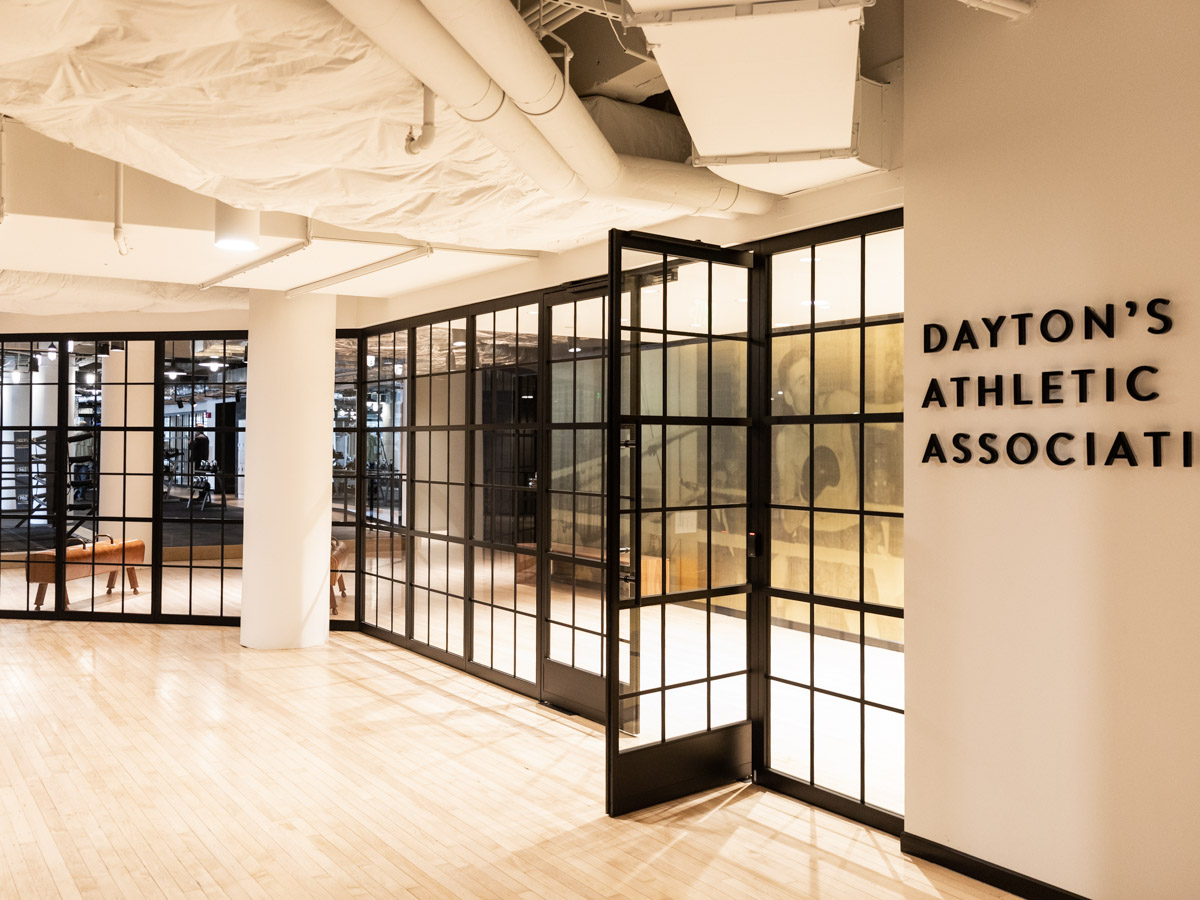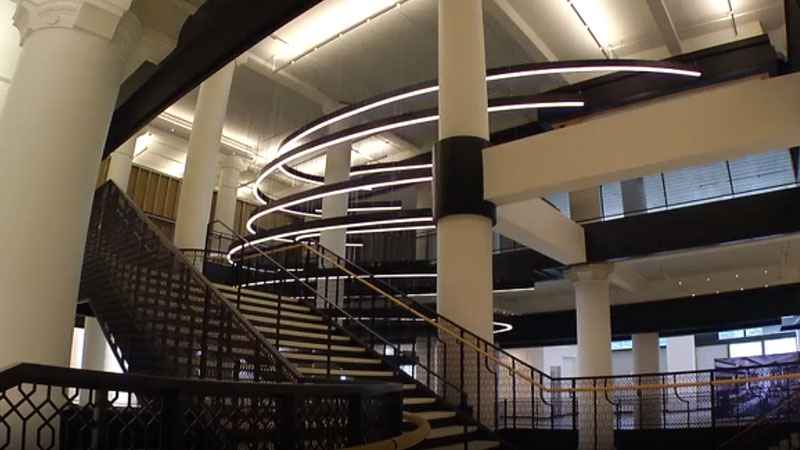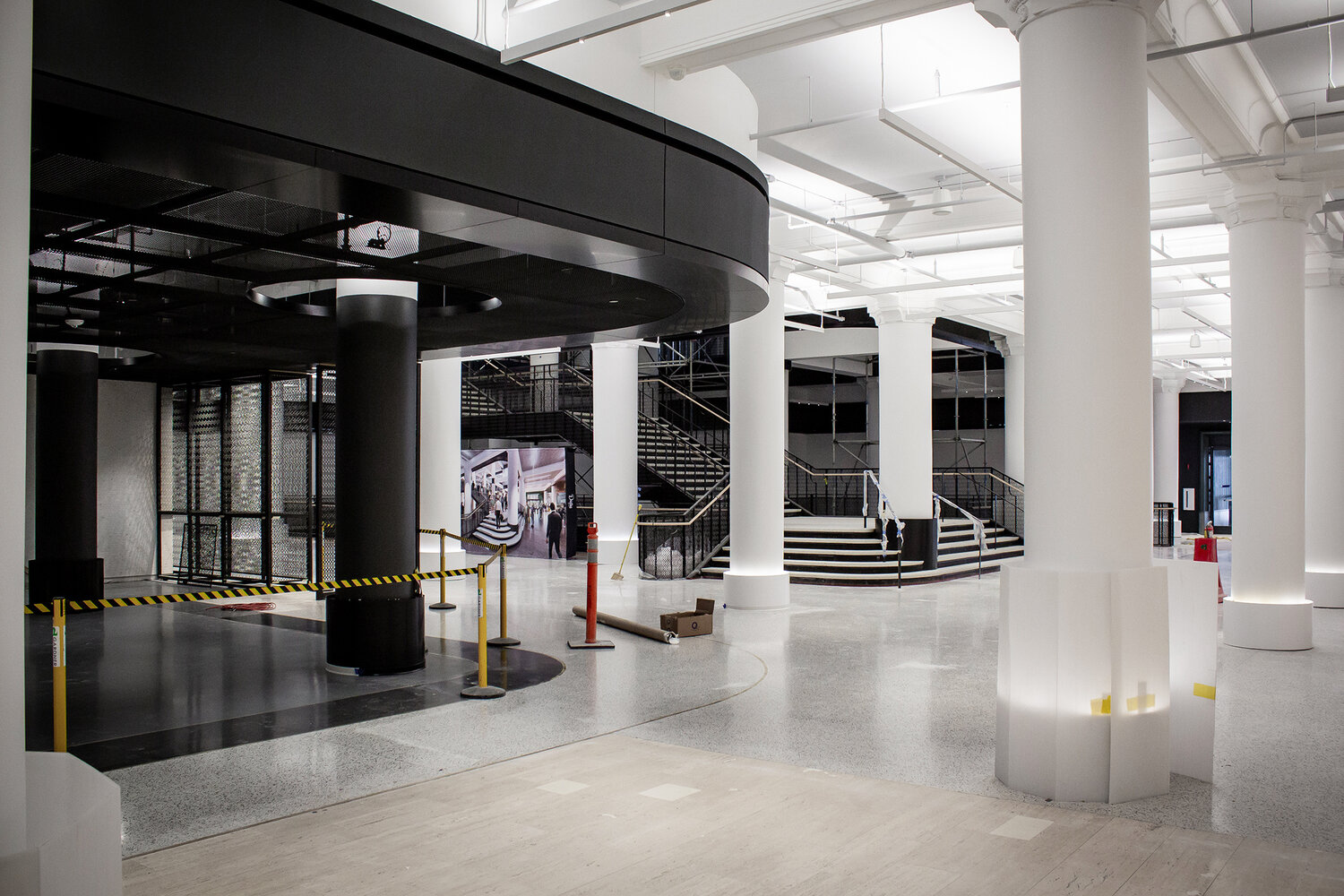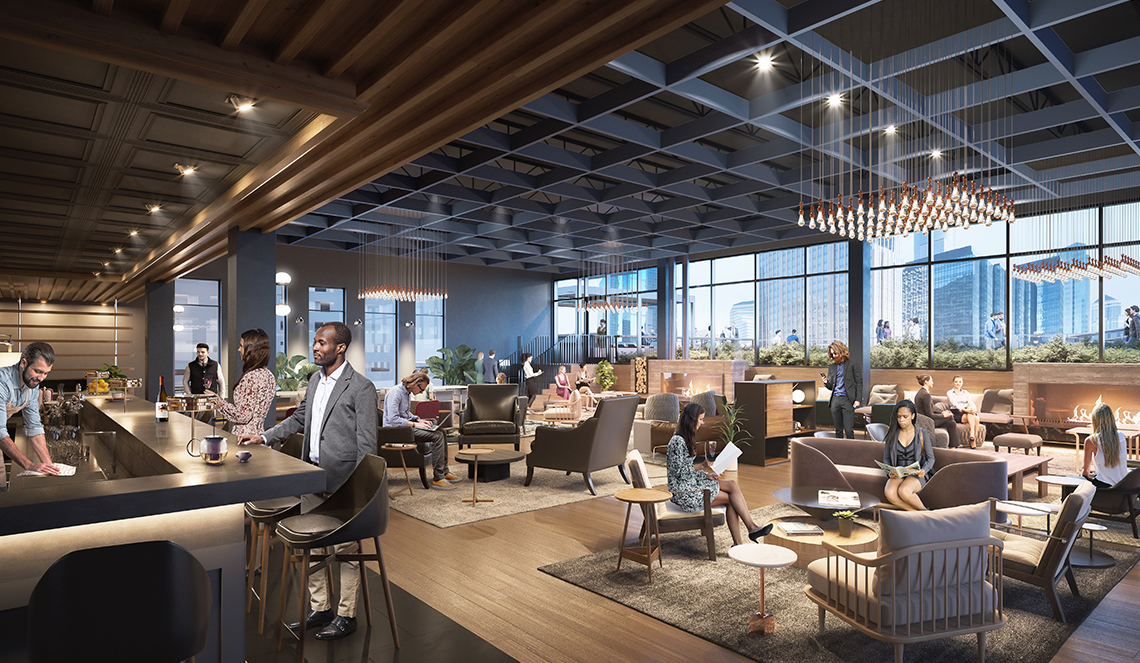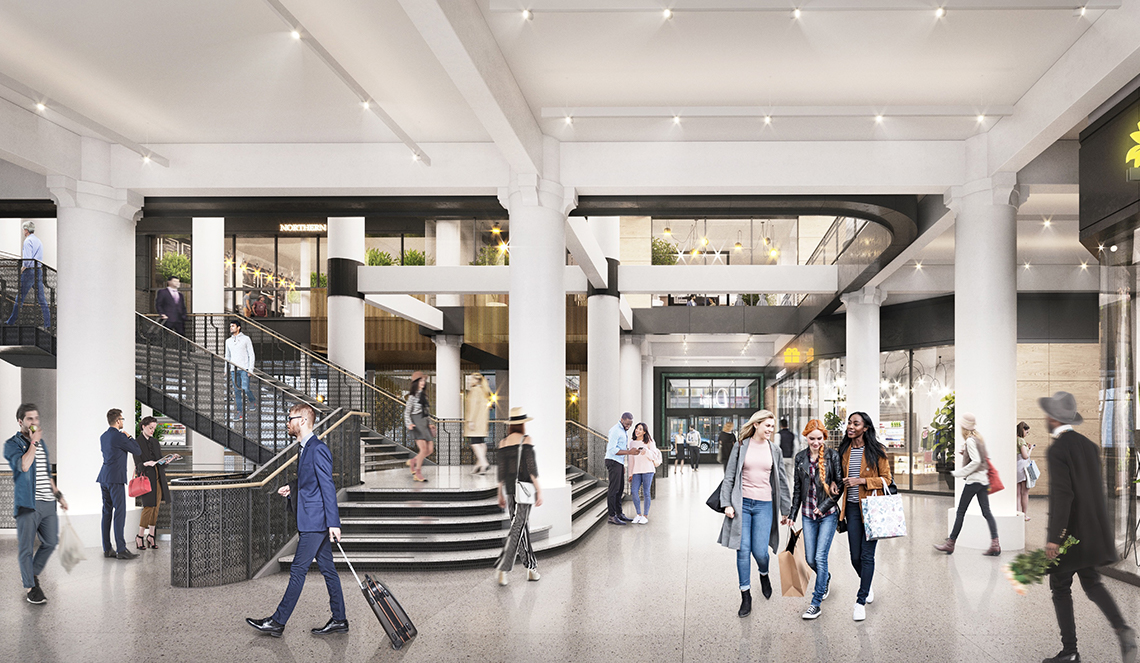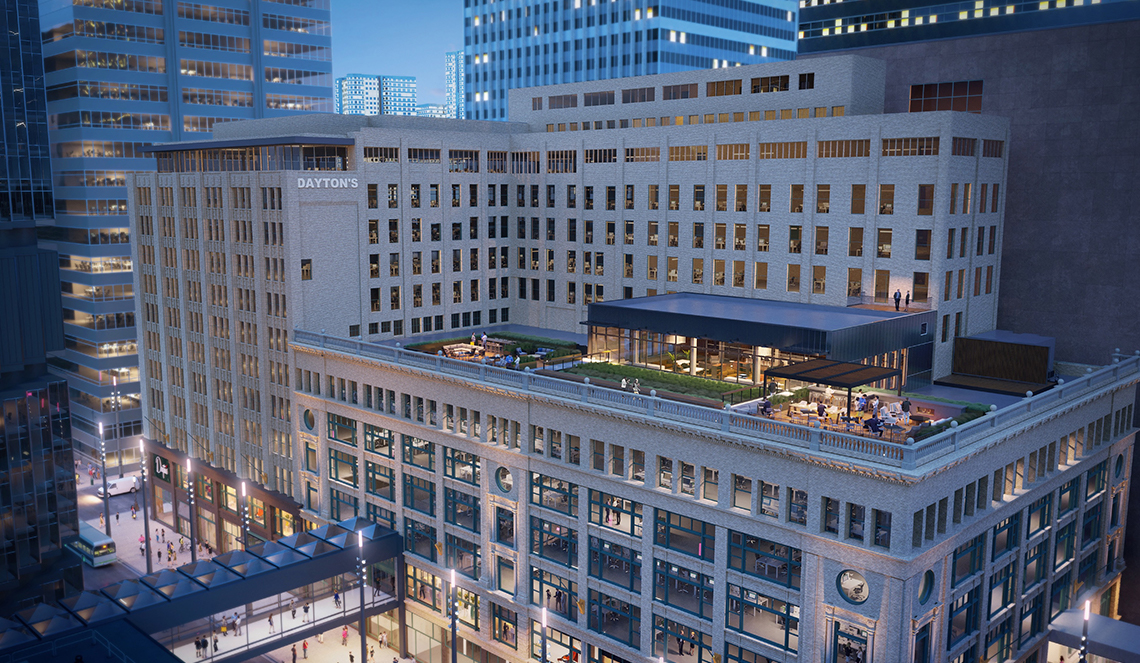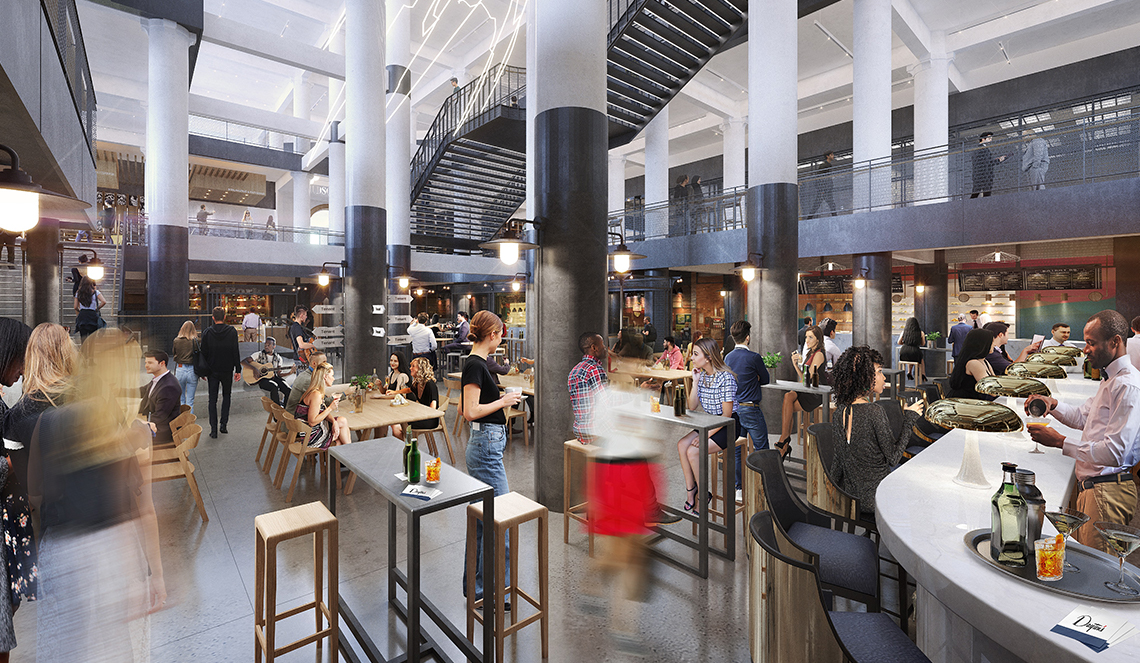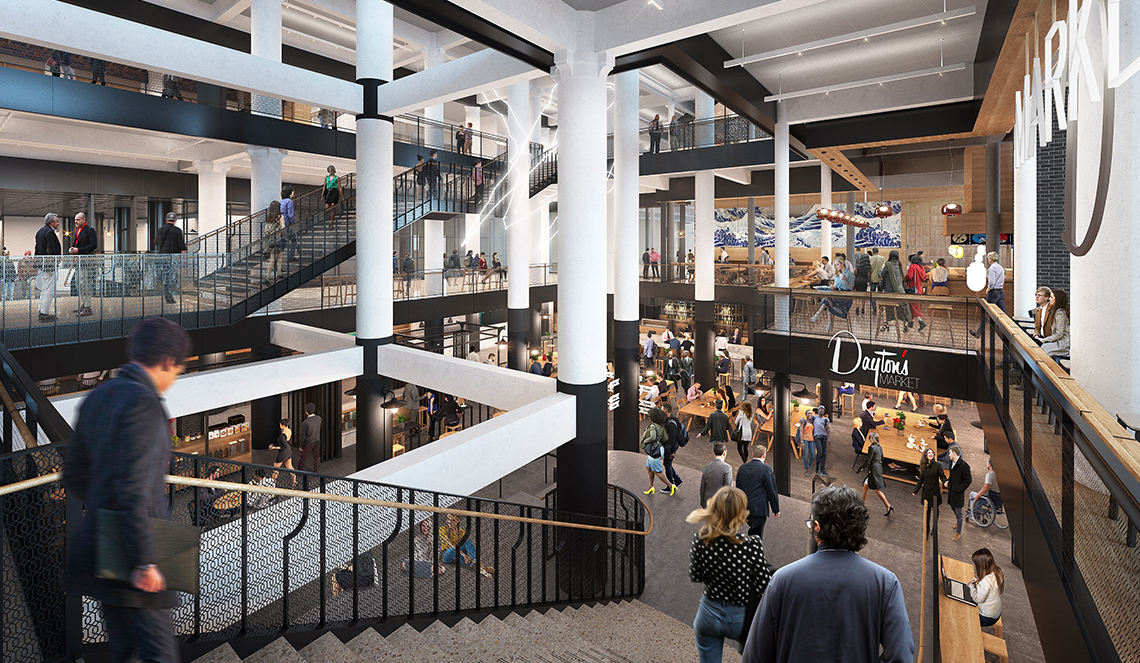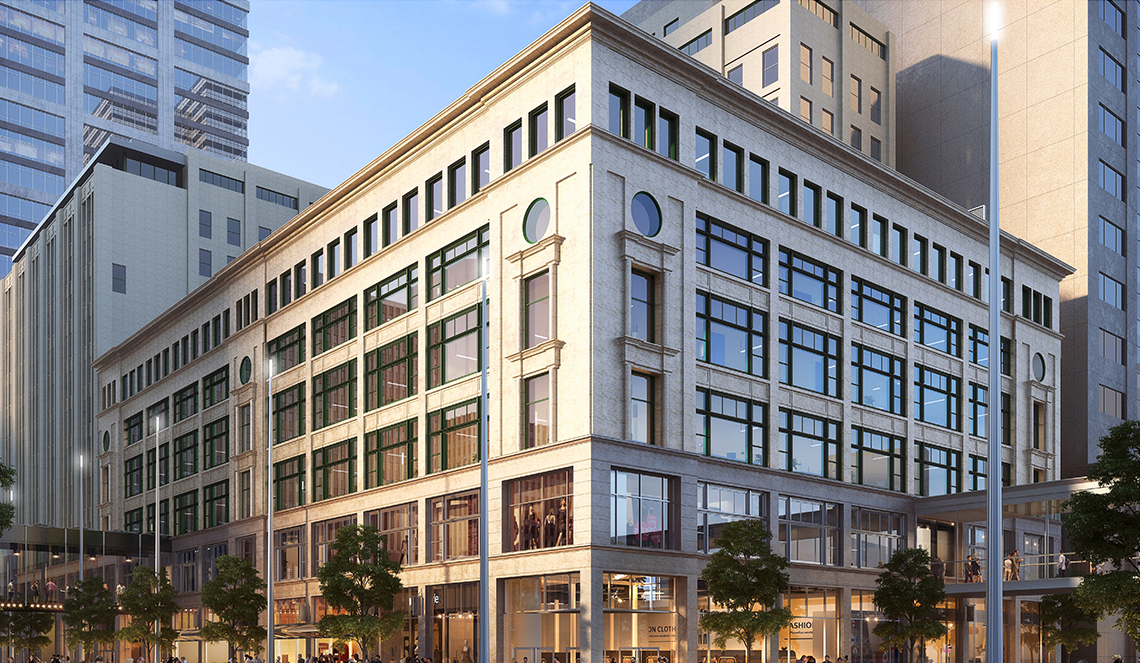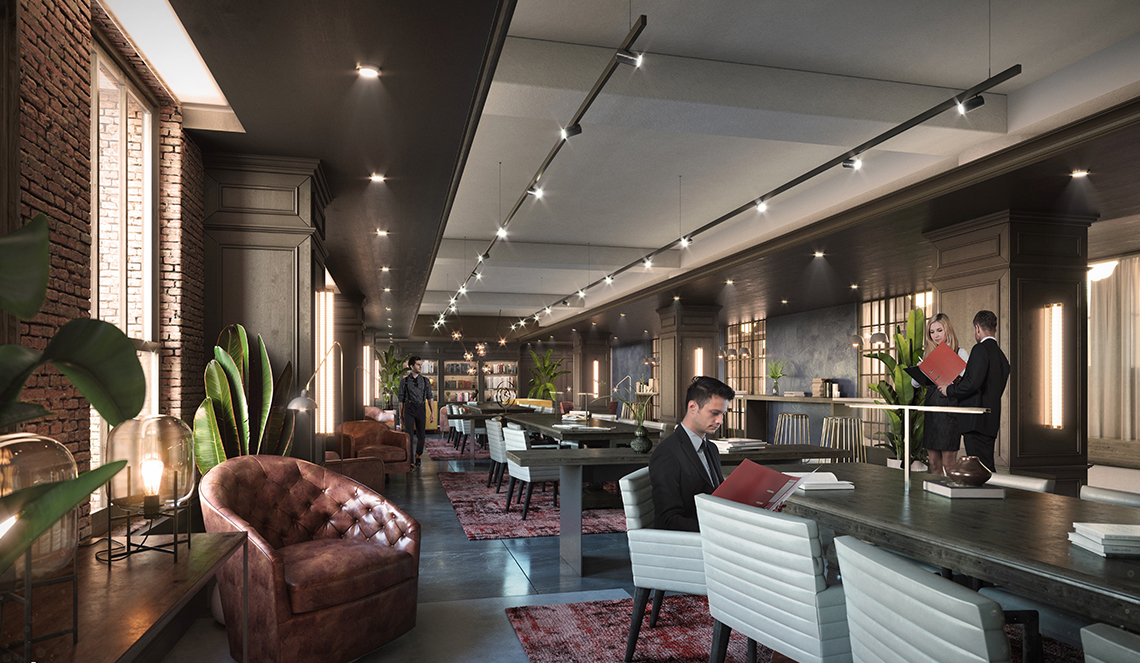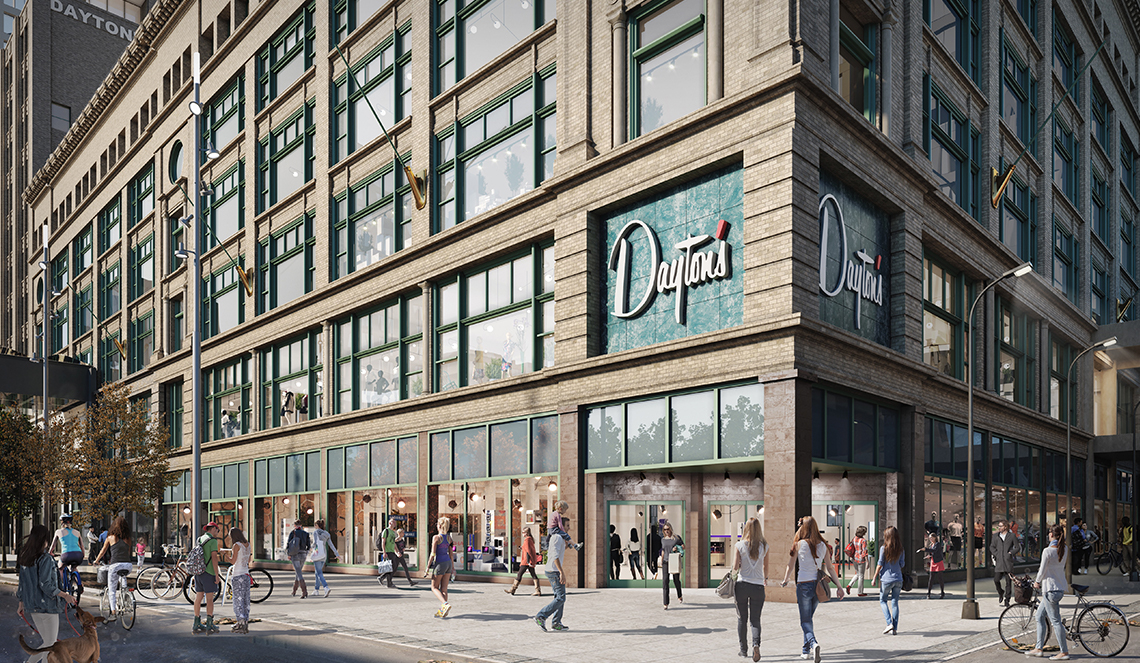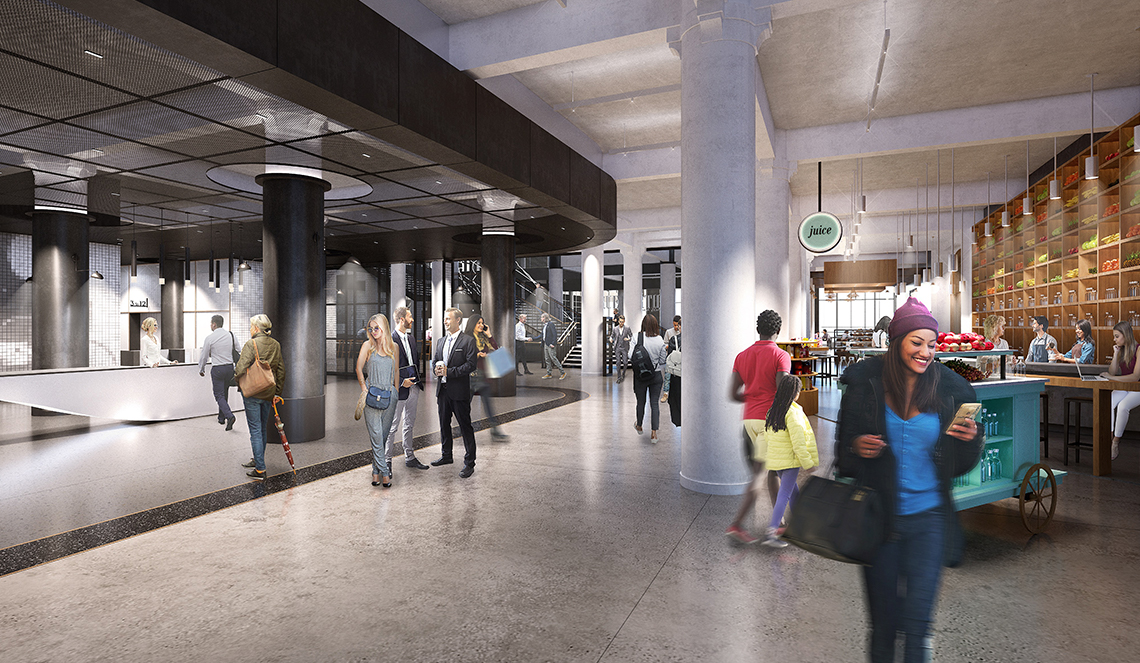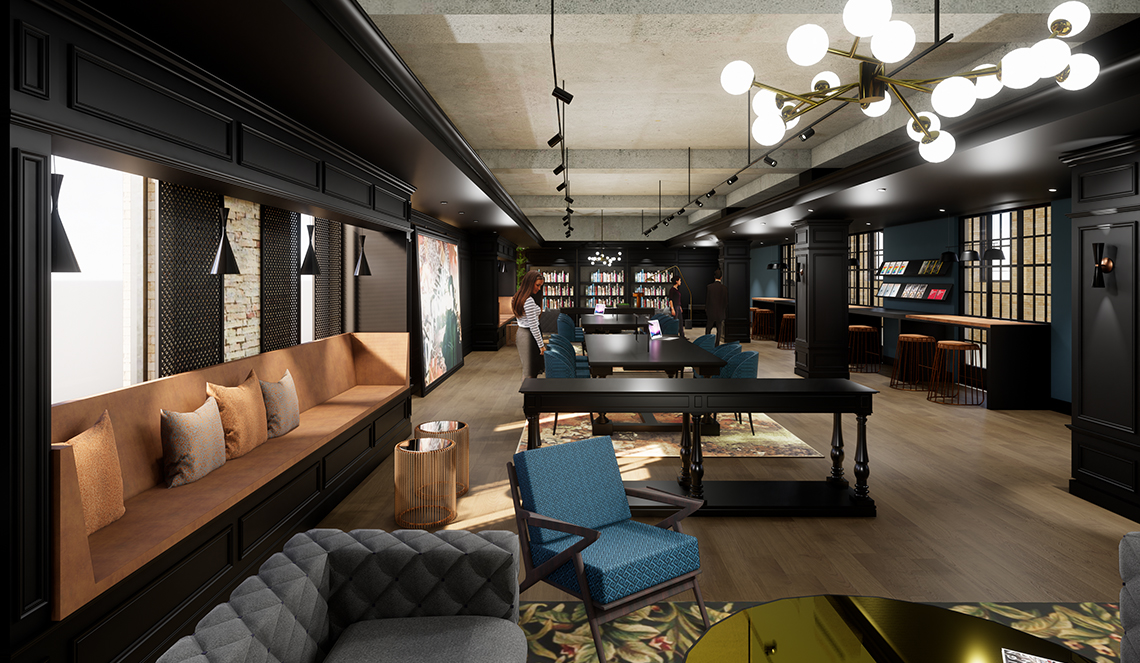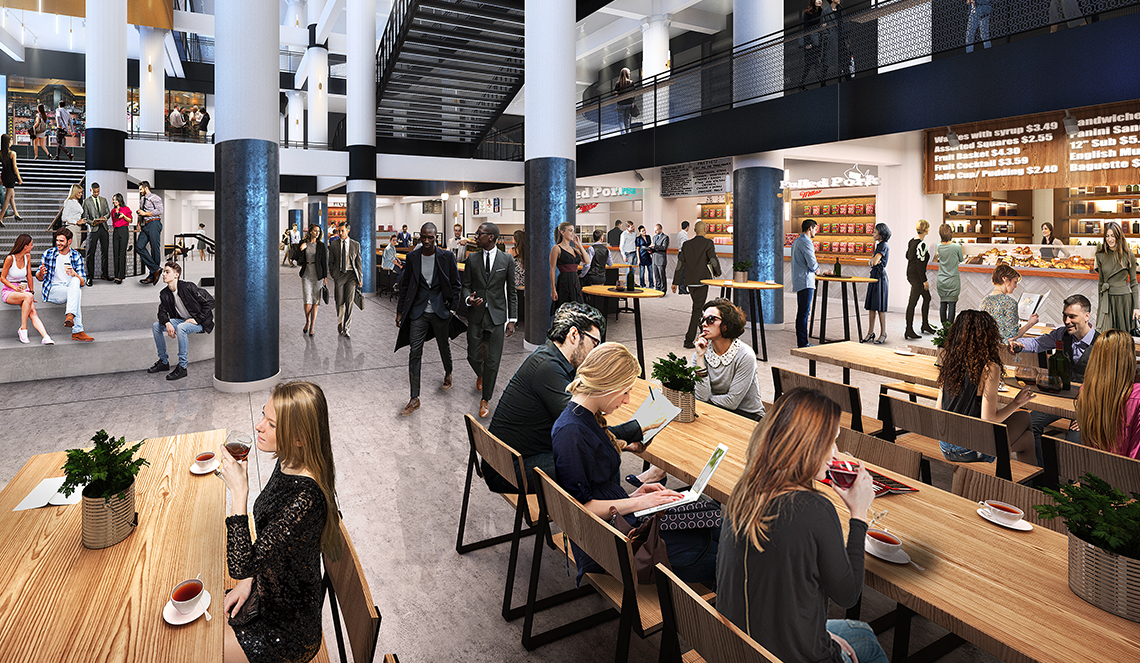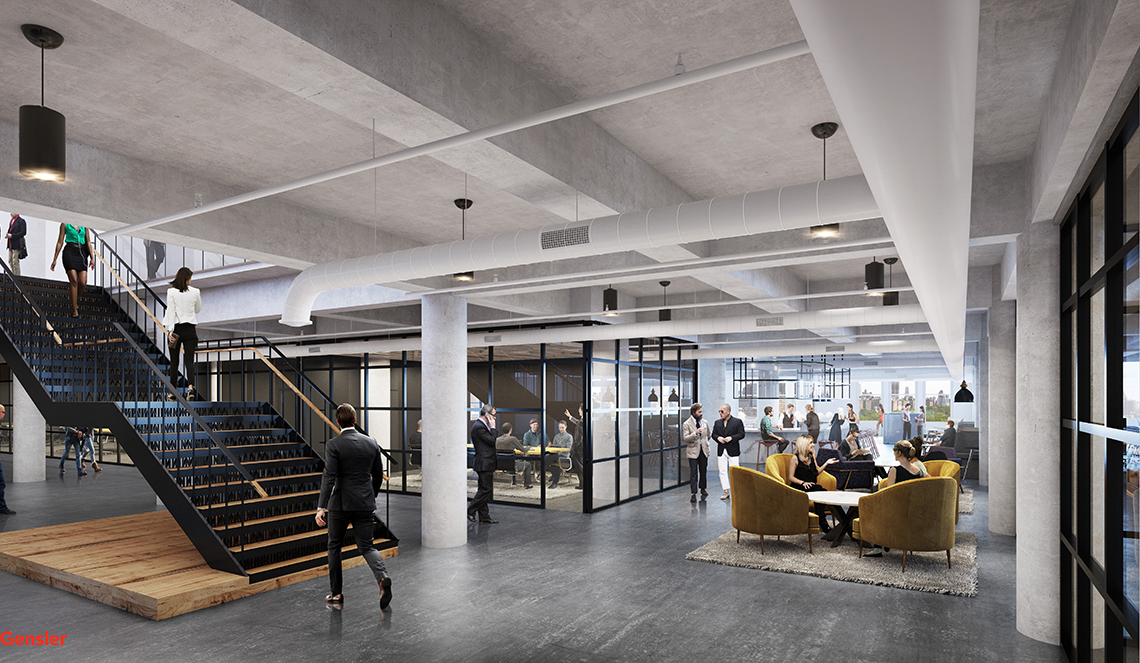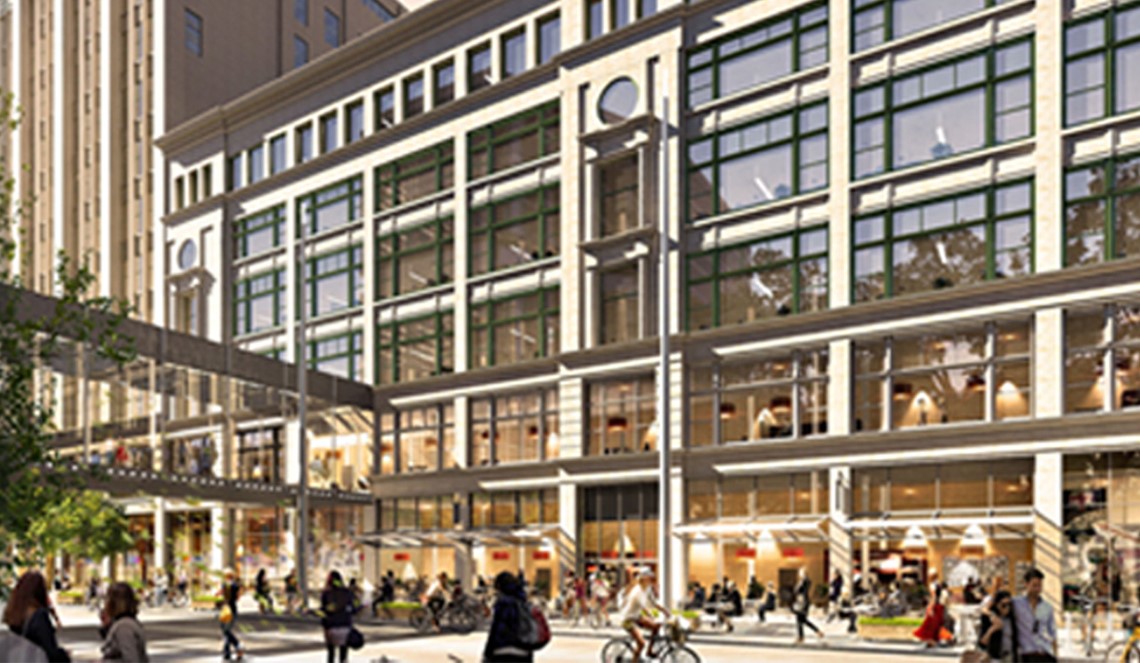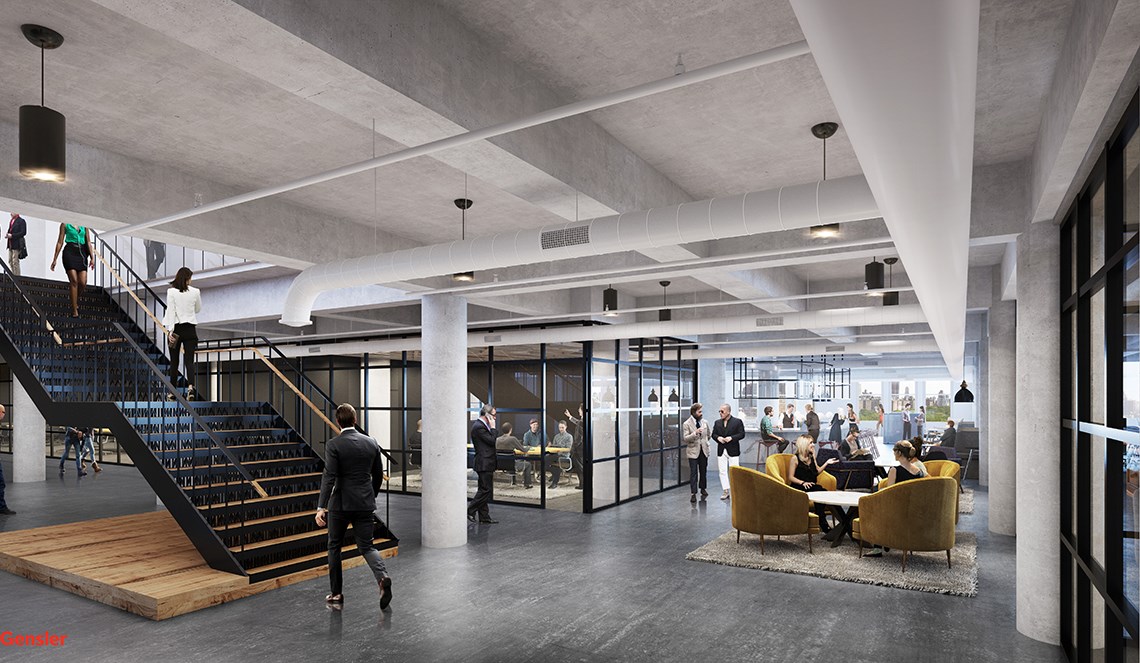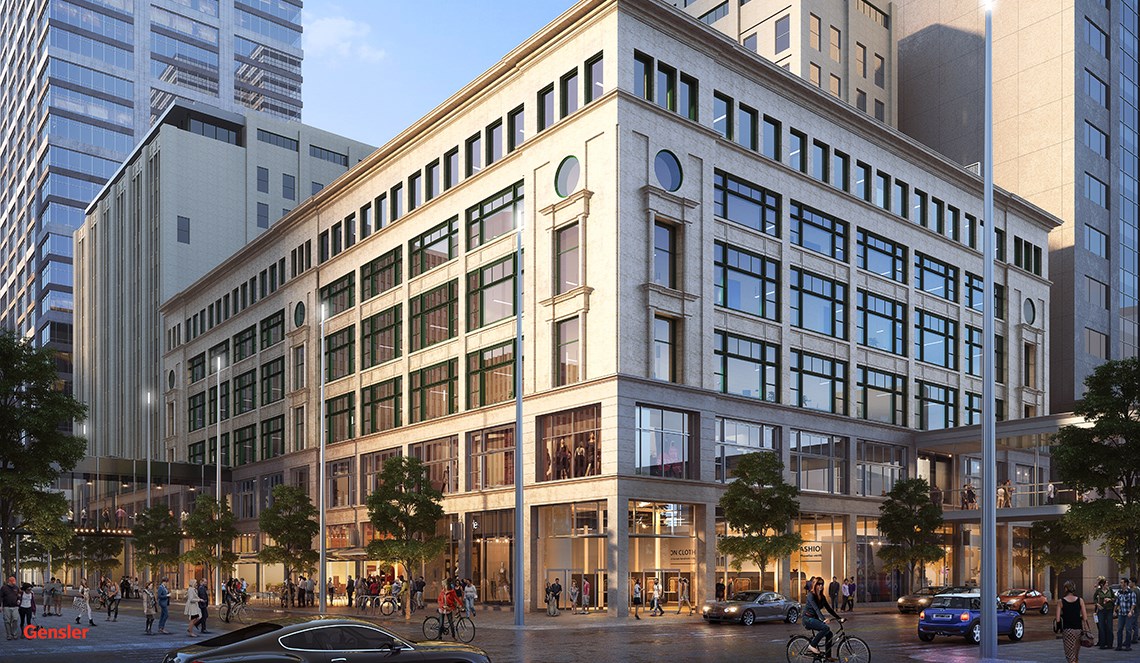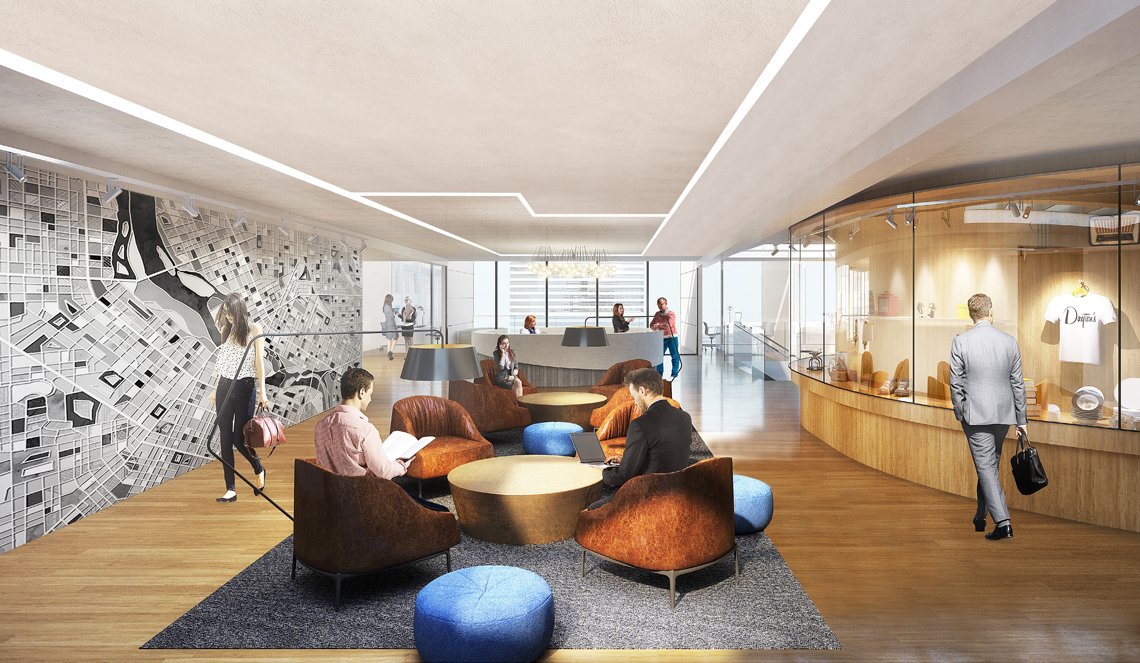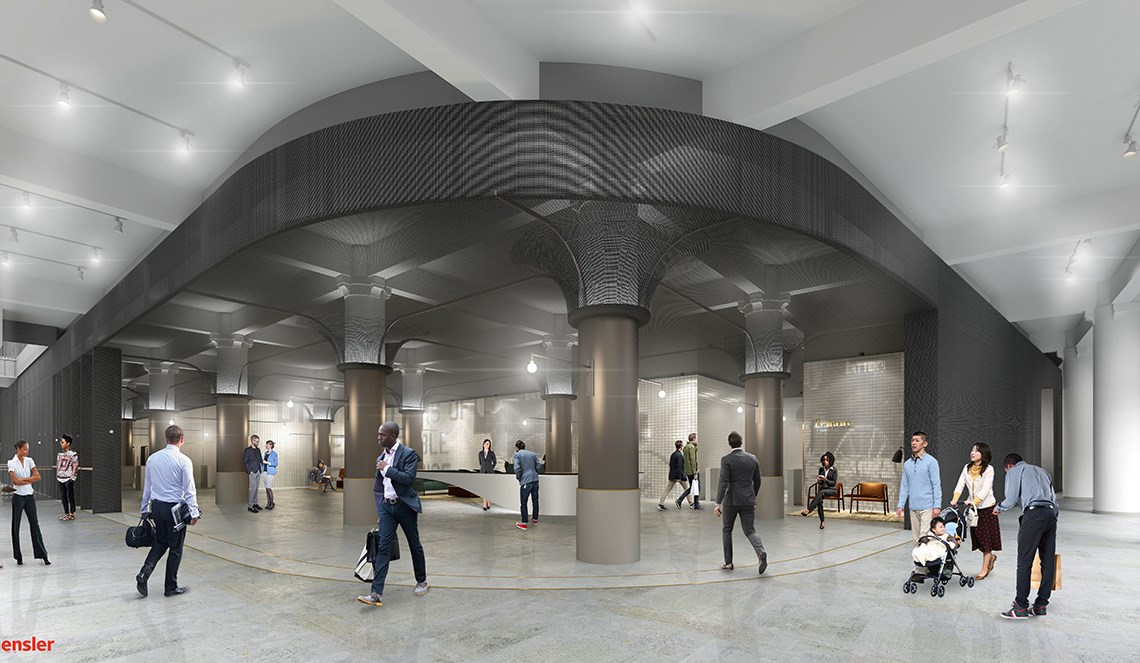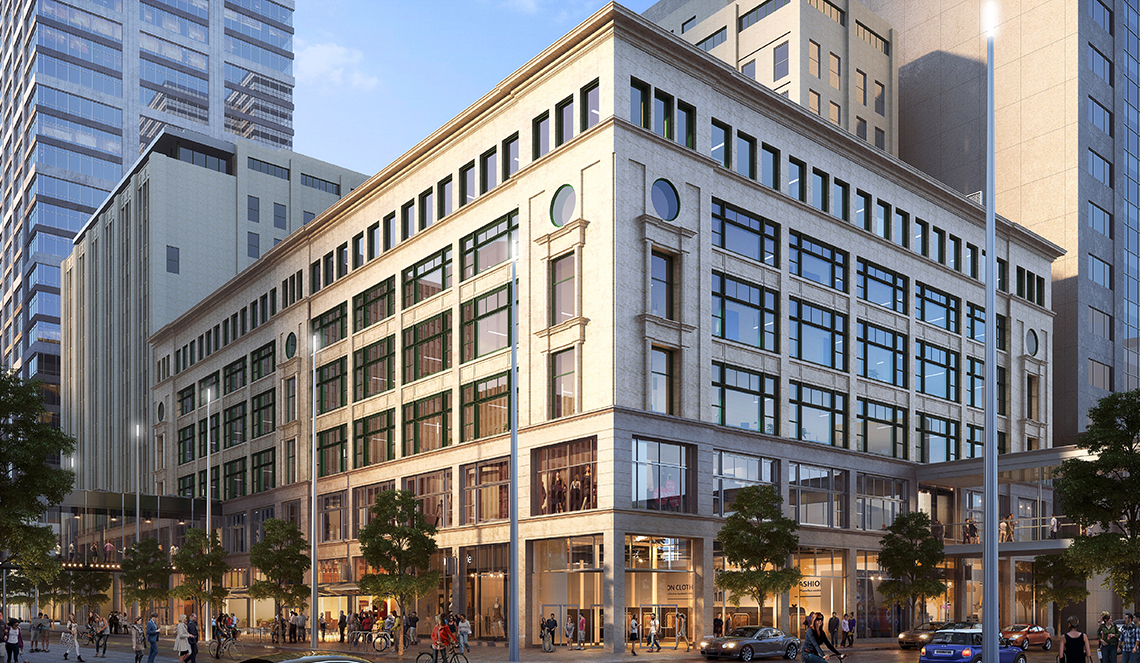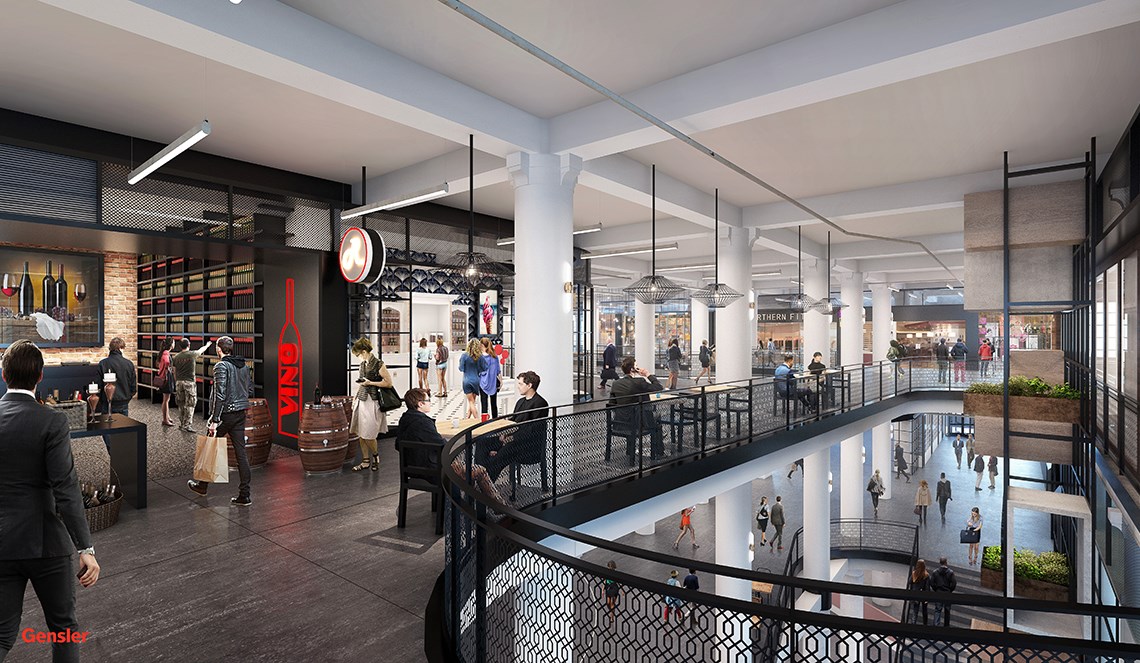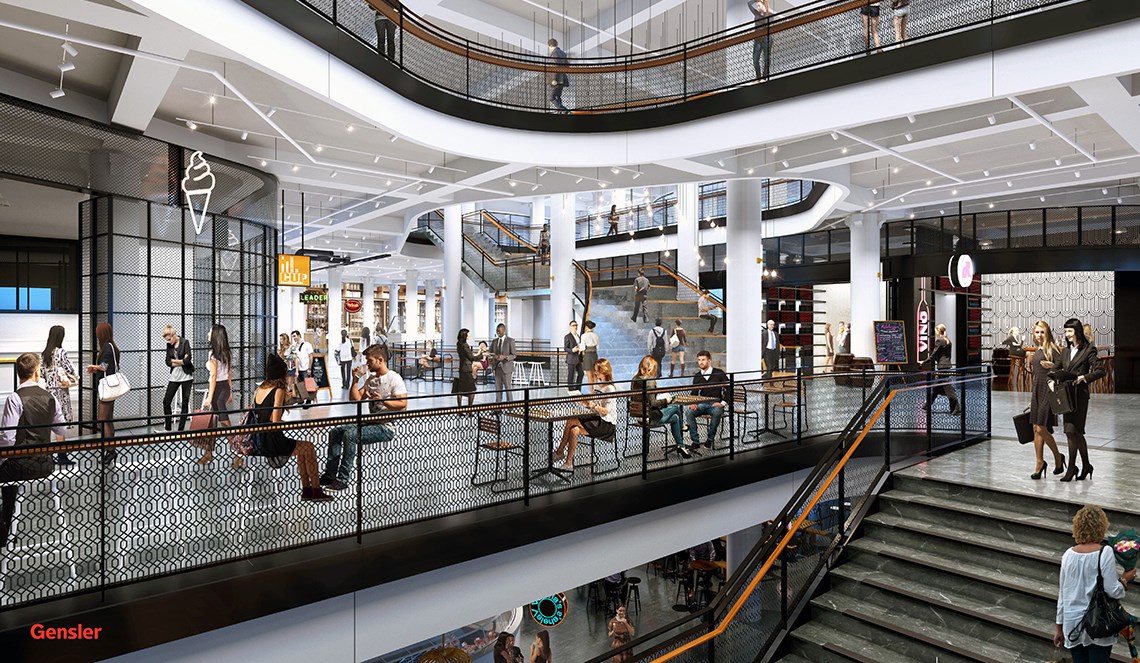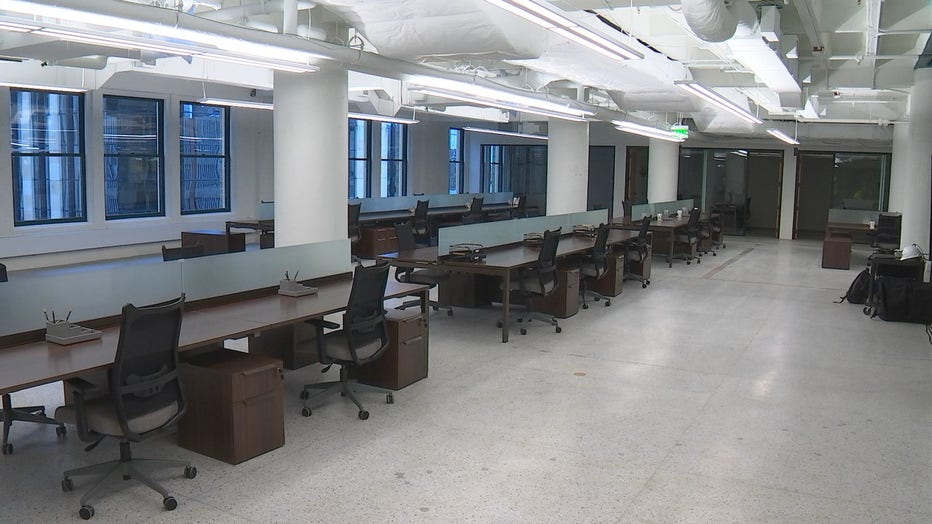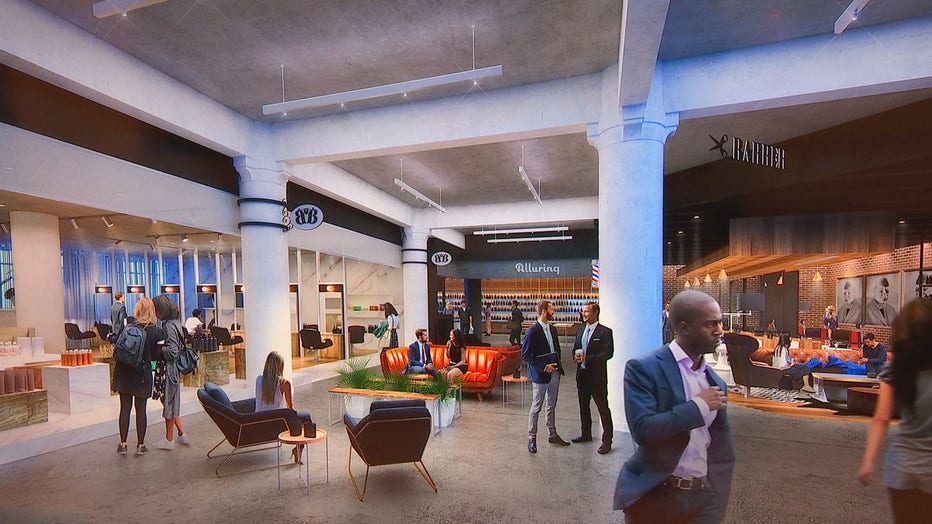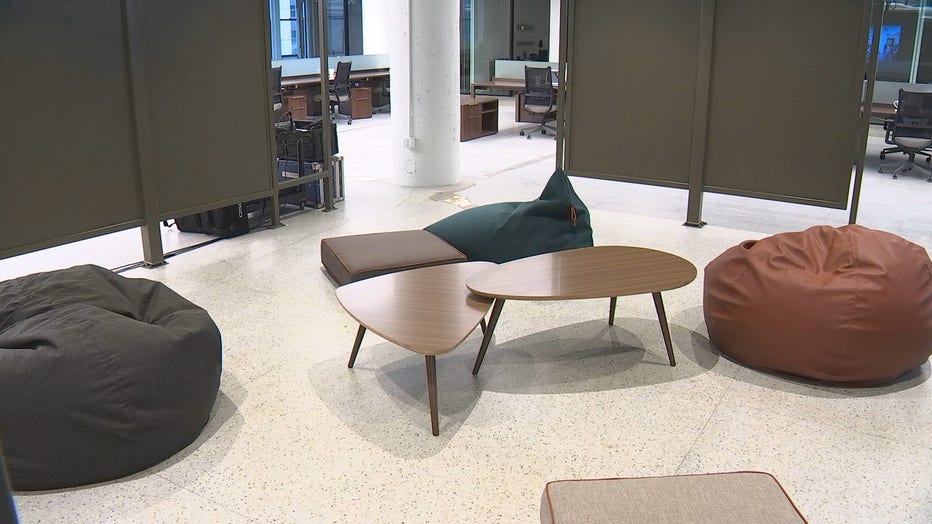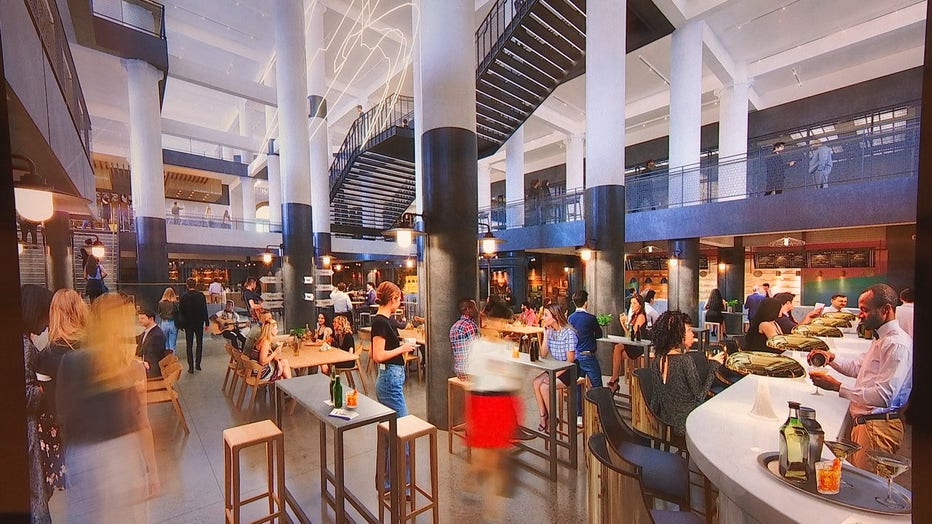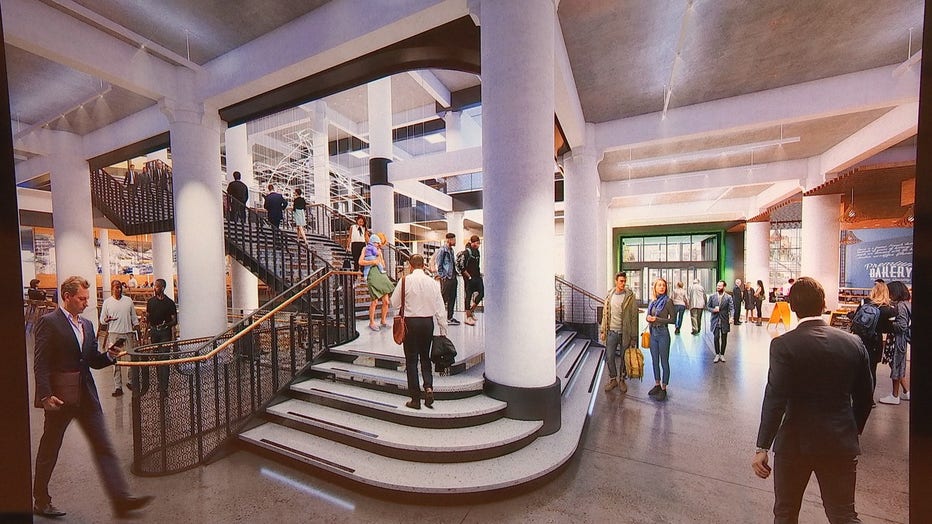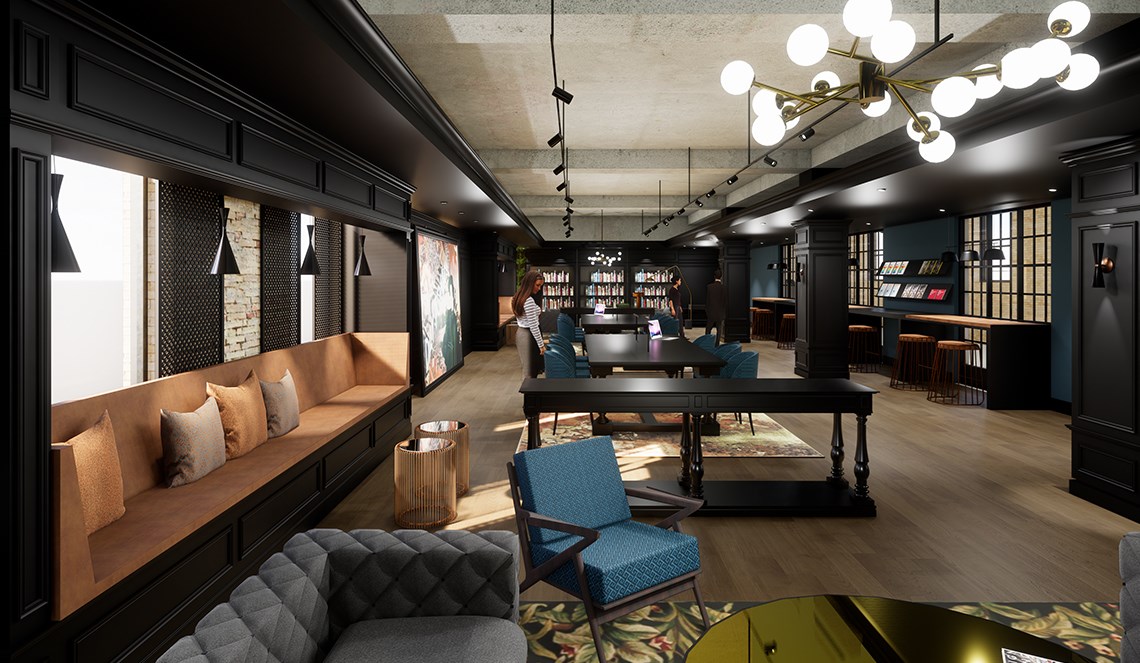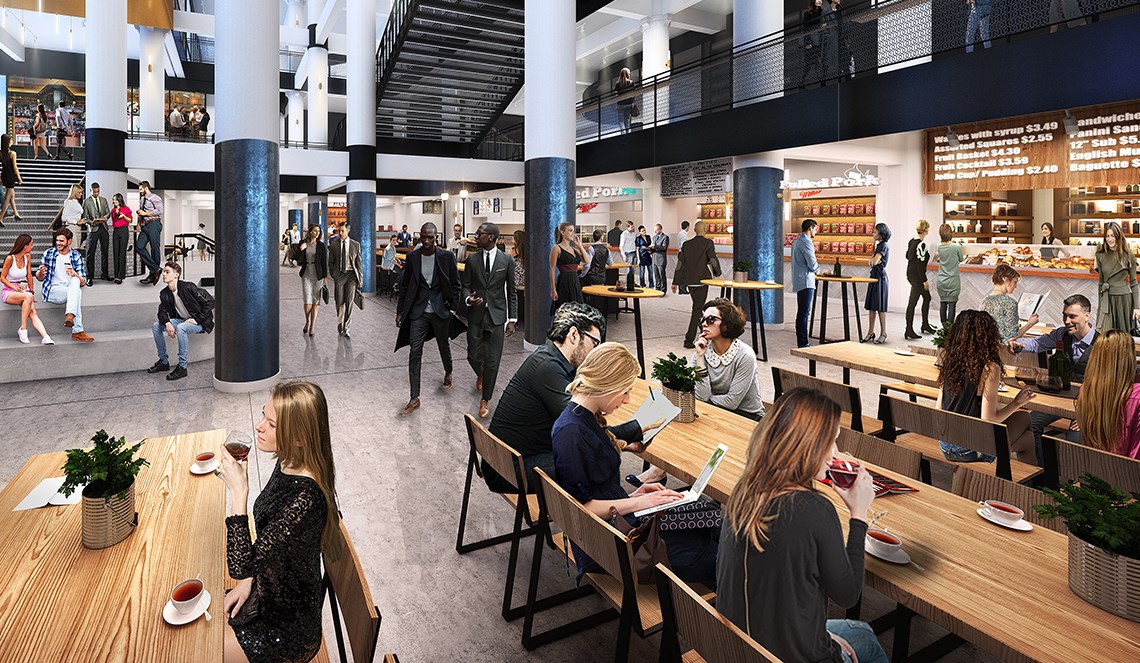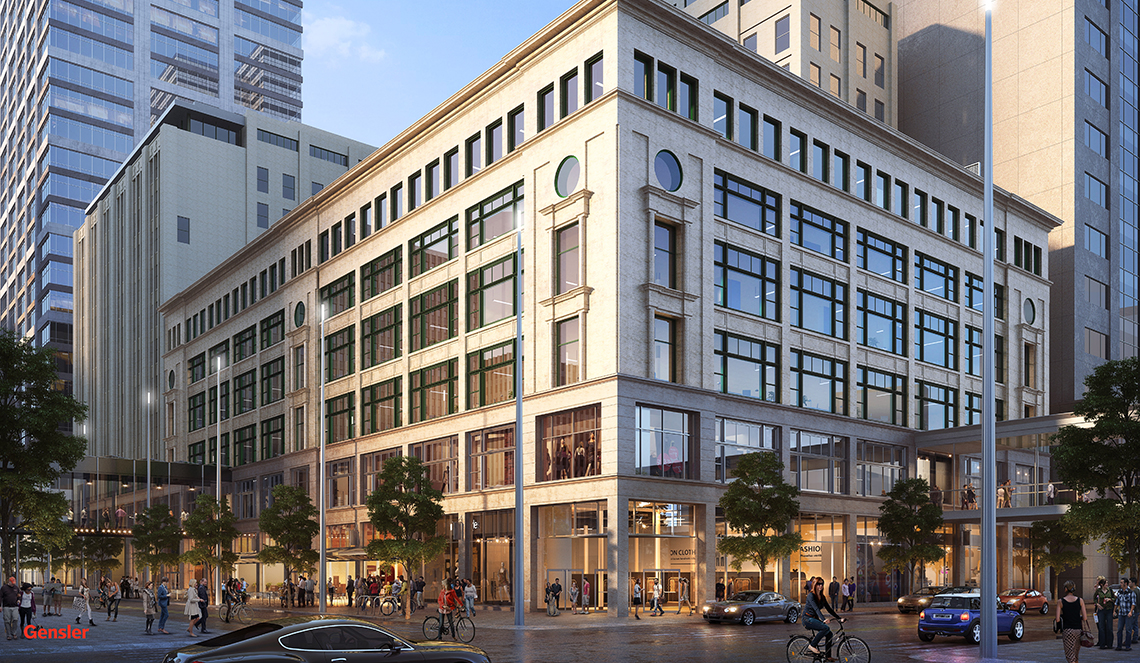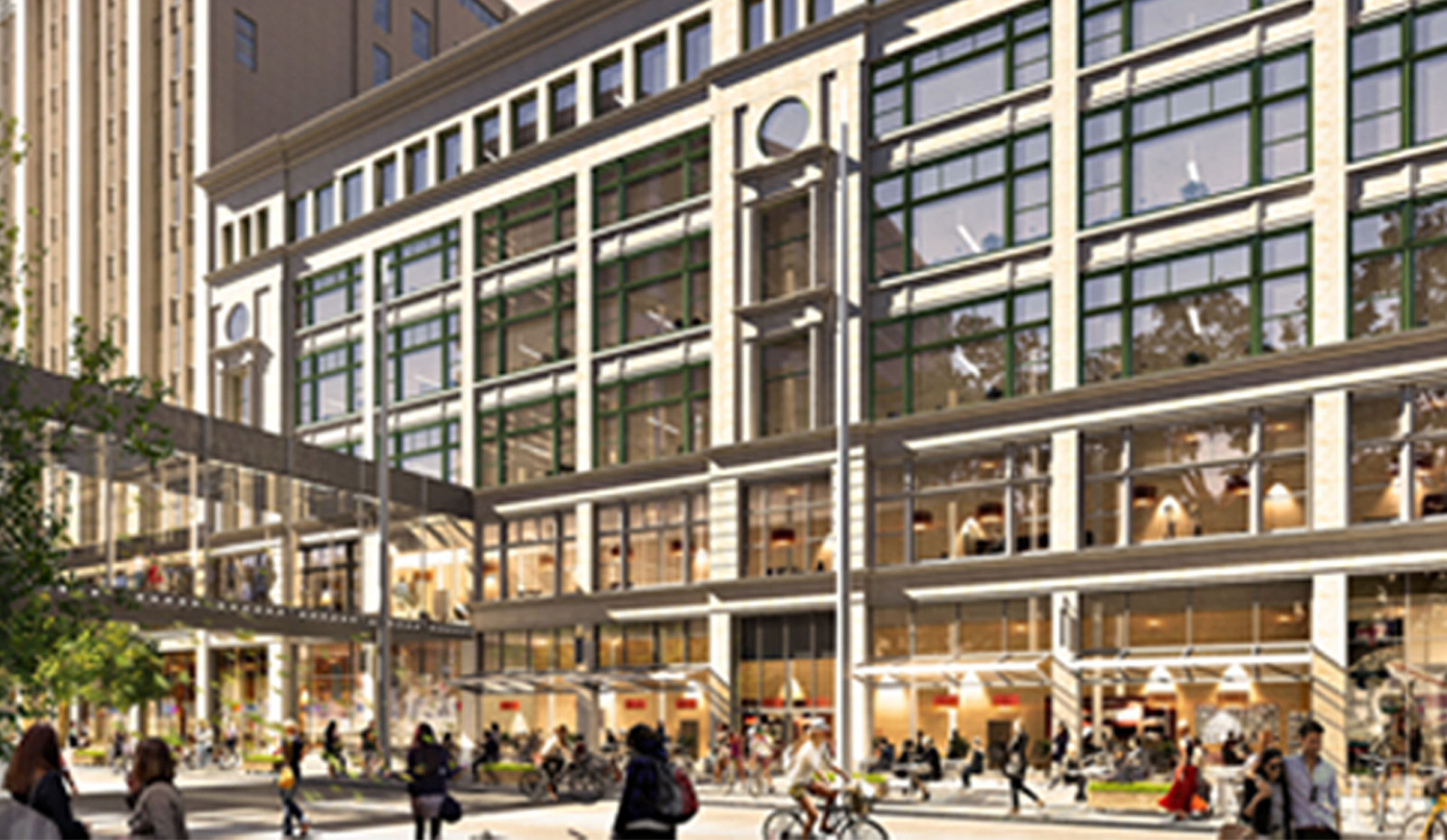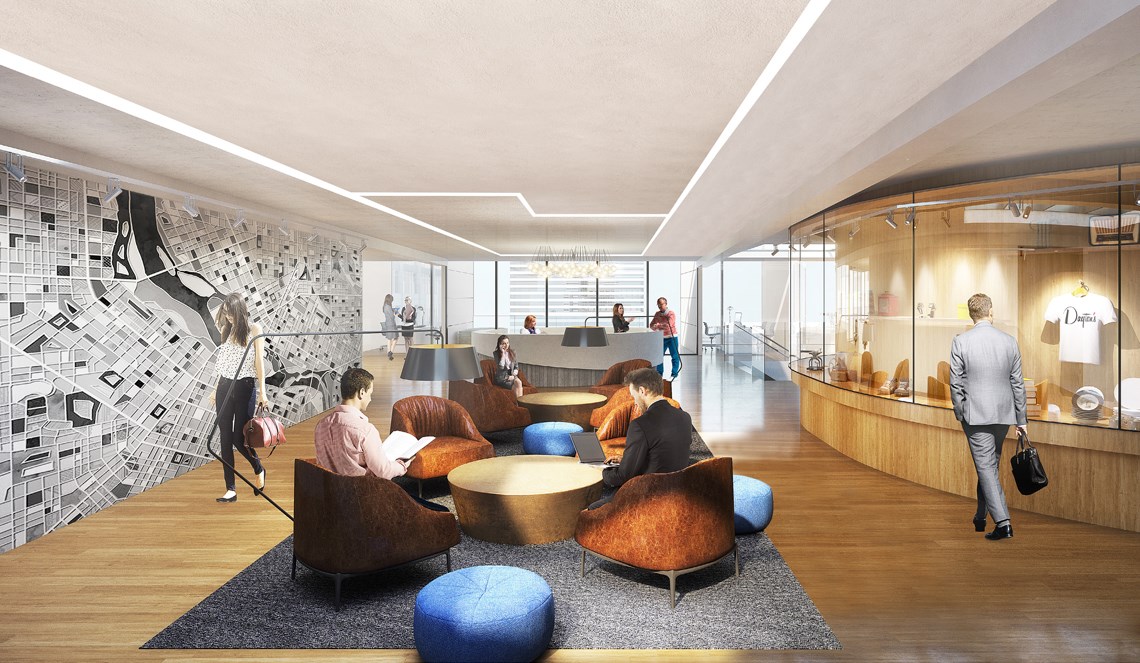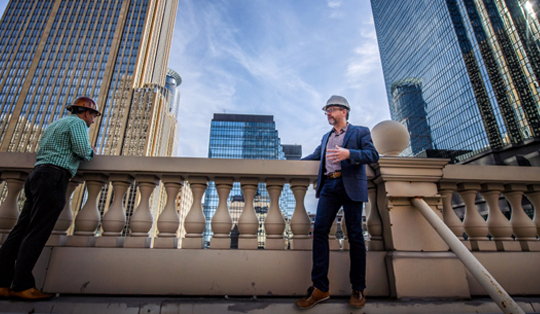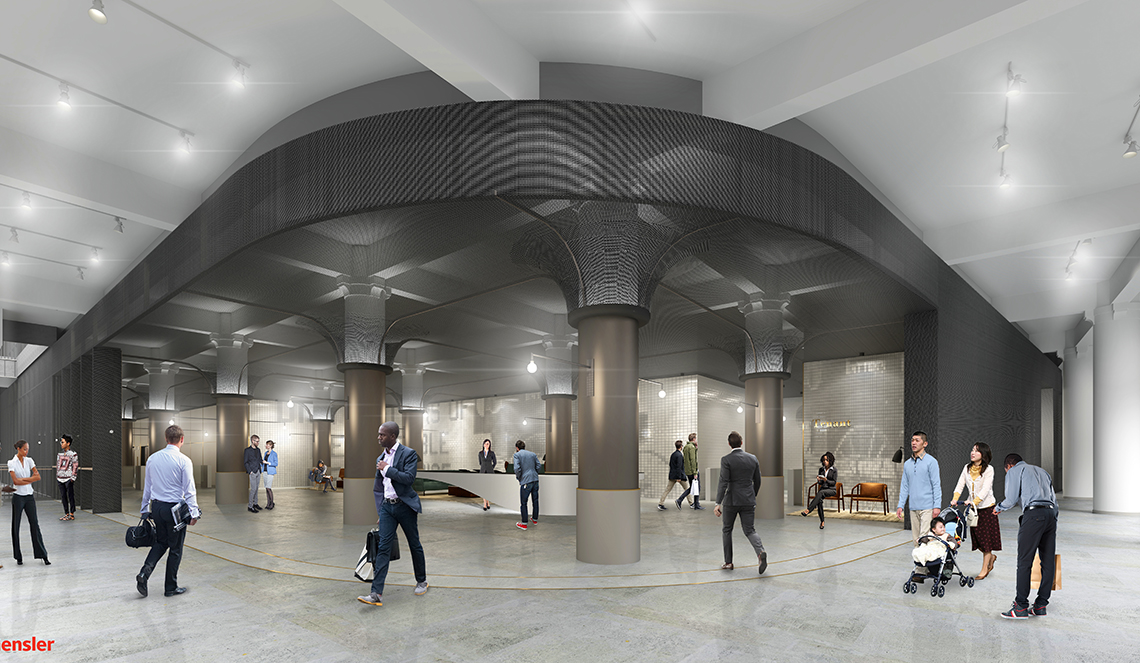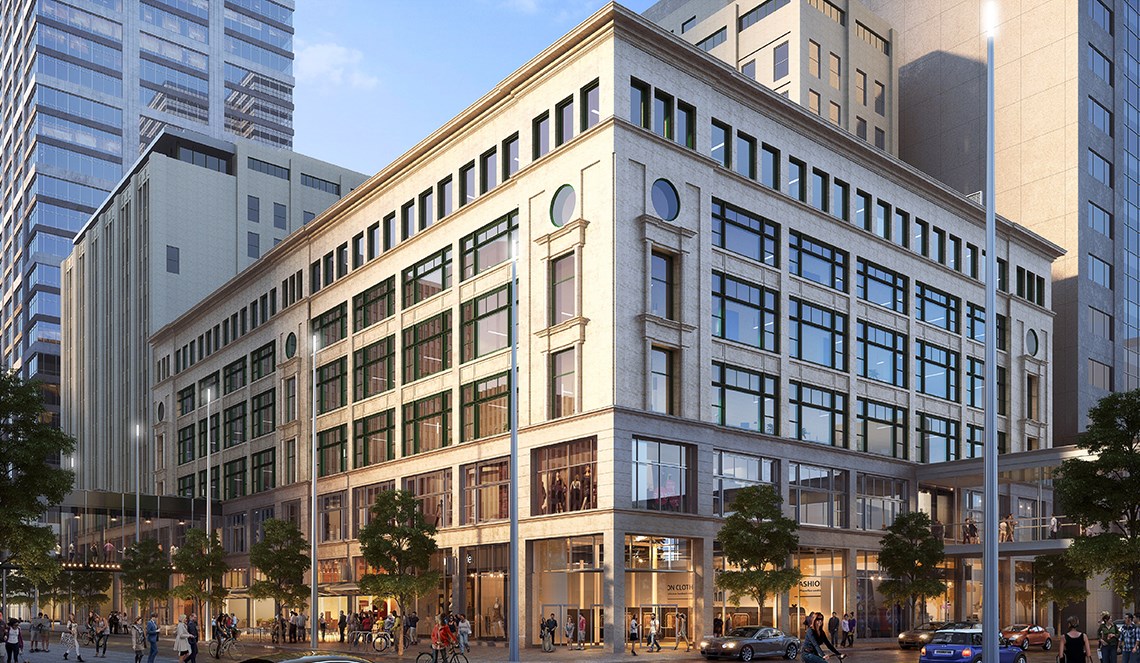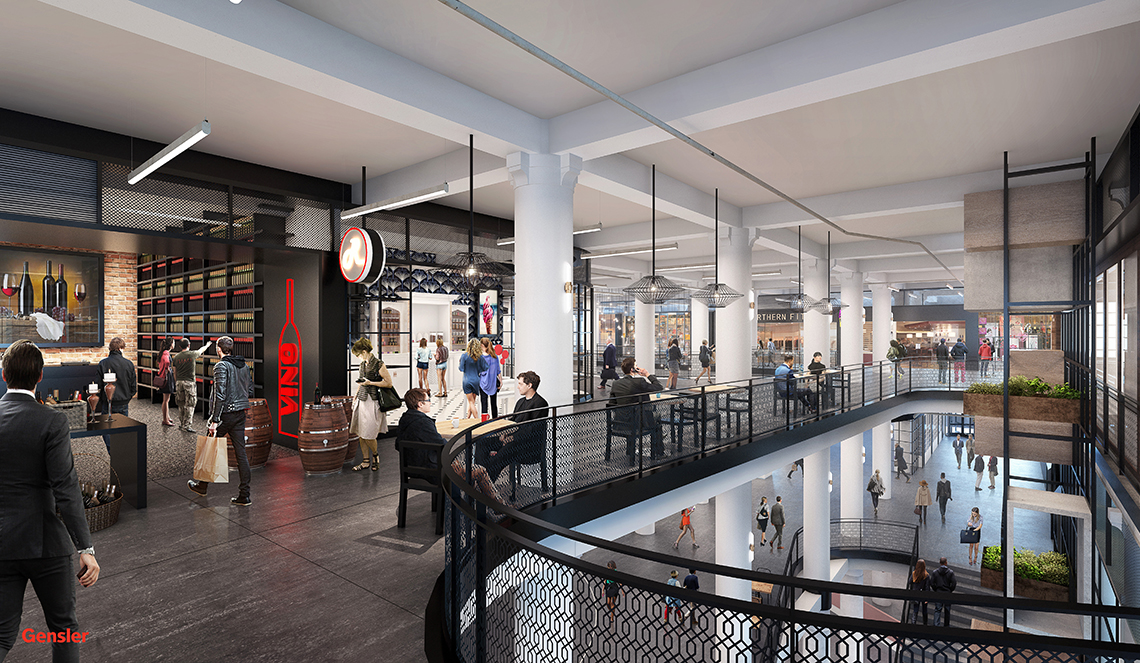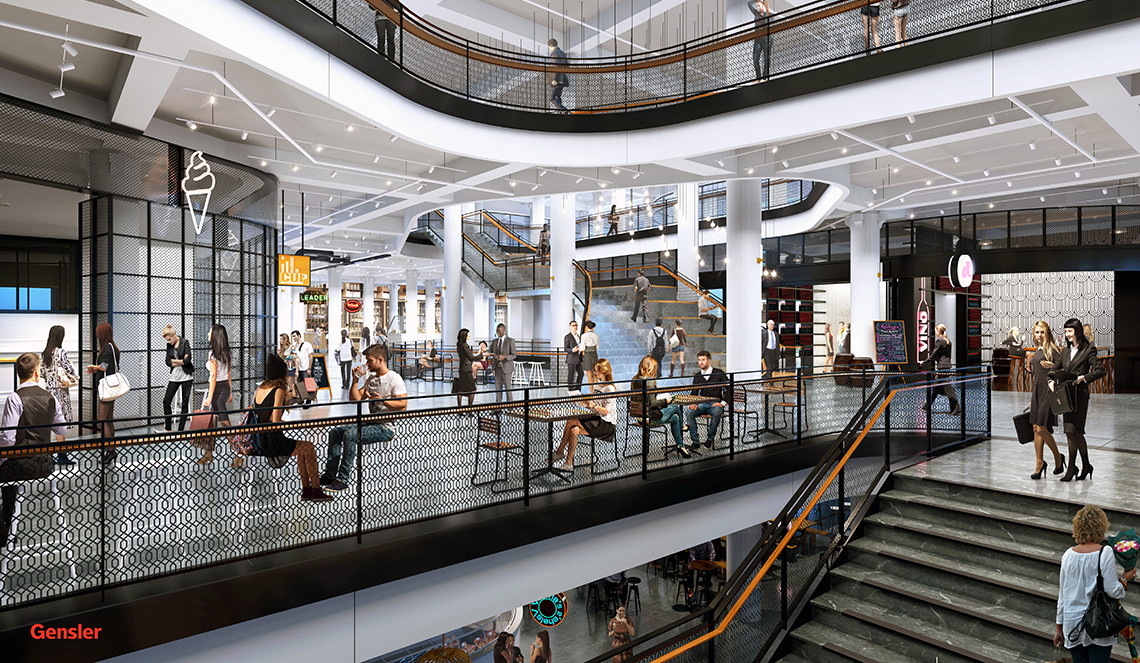The old Dayton’s in downtown Minneapolis will soon be updated with open mezzanines, sweeping high ceilings, shops and offices. And some of its quirks, like the bathroom with turquoise sinks on the fourth floor, will still be there.
Balancing modern design with the history of Minnesota’s grandest department store is a key challenge for the developers who this year bought the three-building complex on Nicollet Mall that for a century was the headquarters and flagship store of Dayton’s and was most recently occupied by Macy’s.
The new owners, 601W Cos. of New York, and their local development partners are hoping to revive the Dayton’s name and logo as they aim to make the building once again the center of retailing in downtown Minneapolis by 2019.
The lower levels of what they are now calling "the Dayton's Project" will be filled with stores, restaurants and a food hall with a mix of trendy vendors and dining options. The upper floors will be office space with a health club and large outdoor terrace.
“What we are looking for is to be a destination,” said Brian Whiting, president of the Telos Group, a minority owner in the project.
If the retail portion of the building succeeds, it would be a much-needed boost for Nicollet Mall, which lost stores during a $50 million makeover that began in July 2015 and is nearing completion.
The building joins a growing list of old department stores that are getting new lives. In St. Paul, tenants have already started to move into the former Macy’s building that’s been turned into offices, shops and the practice home of the Minnesota Wild. In St. Louis and Pittsburgh, developers are turning downtown sites last occupied by Macy’s into apartments, offices and shops.
The downtown Minneapolis property is actually three buildings that add up to about 1.3 million square feet, about the size of 10 Target stores.
Though not the height of a skyscraper, the buildings have the space of one.
Work crews are already tearing out walls and fixtures that remained from Macy’s, which owned the building for the past decade and sold it to 601W for $59 million in March.
The new owner and its partners will spend tens of millions more to update the buildings, the oldest of which dates to 1902. Some early renderings of their ideas leaked on the internet this month, but they provided the Star Tribune with updated versions for this article. On Monday, they plan to formally share the plans with the public.
Also last week, they invited interested parties to walk through the buildings. Among them: Gov. Mark Dayton and his sons Eric and Andrew, descendants of the founder of the Dayton’s chain.
“Fun to see the Dayton’s name carry on in the building,” Andrew Dayton said.
Eric Dayton, who has been campaigning for downtown property owners and workers to return to the streets from the skyways, said he was impressed by the developers’ ideas for opening up the building to Nicollet Mall.
“I think it’s really exciting to see the building opening back up to the street,” he said. “The difference that makes of taking a building that was really inwardly oriented and flipping that and opening that up to the street is a huge part of creating the energy that we want on Nicollet Mall and all of downtown on the street level.”
The new owners have put aside about $10 million for demolition and asbestos abatement work that is currently underway, said project coordinator Don Kohlenberger, president of Hightower Initiatives. Mechanical systems will be overhauled before rebuilding begins.
Developers are working with historic preservation officials, in part to qualify for tax credits but also to be good stewards of a place that was a destination for generations of Minnesotans.
“This building has a great history, lot of good memories around it,” said Steven Bieringer of architecture firm Gensler, one of the project’s designers. “So we are not going to be altering that, [or] those portions of the building.”
Blending old and new
On the top floor, the Oak Grill restaurant sits dusty and empty, with planners still figuring out what portions could be reused in a public part of the complex. The nearby Skyroom is also in a part of the building reserved for office tenants. If a tenant wants to maintain its picturesque ceiling of painted clouds, Kohlenberger said it’s possible but could be difficult while changing some of the mechanicals of the space.
The new owners also want to save the retro-looking bathrooms on the fourth floor, though some work will likely be needed to get them to code.
The public will see the biggest changes in the basement and the first two levels. The new owners plan to cut away a portion of those floors to create an atrium-like space that is connected by grand staircases instead of escalators. While images that were leaked a few weeks ago showed garage-door-like windows on the street level, developers last week said they will be a different design while still connecting the space to the street.
They hope to attract a restaurateur for the JB Hudson jewelry space, which was set off from the rest of the old department store and featured dark wood, intricate ironwork and pocket doors. The food hall in the basement will have room for about 20 vendors, with some rotating through. It will join a growing number of Twin Cities food halls, which also include the one in Midtown Global Market in Minneapolis and another being built in the former Schmidt brewery in St. Paul.
“They really want this space to be active and engaging, and they will see us bringing people to the space not just 8 to 5 but in the evenings and on the weekends,” said Tricia Pitchford, senior vice president for leasing at Mid-America Real Estate-Minnesota, who is heading the retail leasing. “That’s our goal. We don’t want this to be just a daytime opportunity. We want this to really regenerate the activity and the interest on the nights and weekends.”
The group expects to reach an agreement with “a signature food hall tenant,” said Bill Katter, president and chief investment officer of United Properties, the Dayton project’s local development partner. “This move will be a key first step in attracting other high-caliber tenants that will round out the project.”
Seeking a big office tenant
The developers plan to attract business tenants to floors three through 12. With the floorplates aligning for the three buildings, tenants could take as much as 90,000 square feet on some floors, far more than what’s usually available in a typical skyscraper or suburban building. It can take a large company to fill such space, and the owners of the old Dayton’s buildings will be competing with the tendency of such firms to build their own offices.
“We believe that the only reason why those floorplates haven’t been embraced in Minneapolis is that they haven’t existed up until this point,” Whiting said.
To help attract quality tenants, developers have planned for the seventh floor of the Dayton’s project to be tailored for worker amenities.
“Innovative organizations wanting to go into this kind of space really need two things,” said Erin Fitzgerald Wendorf, a principal at Transwestern Minneapolis, who is responsible for leading the office leasing. “One is unique statement space to reflect their brand and culture and two is amenities to help them attract and retain talent.”
There will be a 10,000-square-foot gym with showers, a “library” space where workers can go for quiet work, and an indoor lounge connected to a large outdoor terrace with green space.
For now, the building is in varying states of teardown mess. On the first floor, shards of wood are all that’s left of product kiosks that had to be hacked apart. Small safes that used to sit behind counters still need to be removed. Some valuable items, such as the large crystal chandeliers, have been safely put in crates for possible reuse.
Construction tape hangs from the exposed ceiling on the fifth floor, where most of the fixtures have been ripped out. In the Oak Grill, black-and-white sheets of paper are taped on the wall to help a scanning device map the room.
Even though visitors won’t recognize most of the space when the project is complete, developers say they hope the Dayton’s legacy will live on.
“What we really want the lasting effect for this building to be is the entertainment and cultural center of the downtown area and a guiding light for the rejuvenation of retail and entertainment,” Whiting said.
RETURN TO NEWS

_article.jpeg)
.png)
